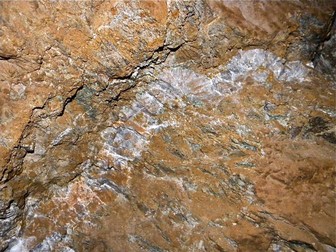USAID/CARPE Promoting Alternative Technologies and Fuels to Reduce the Use of Charcoal for Cooking in the Democratic Republic of Congo
The objective of the USAID Promoting Alternative Technologies and Fuels to Reduce the Use of Charcoal for Cooking in the Democratic Republic of the Congo activity is to reduce deforestation and forest degradation by reducing the amount of charcoal that is used for cooking.
Agency: Agency for International Development
Office: Agency for International Development
Estimated Funding: $20,000,000
Office: Agency for International Development
Estimated Funding: $20,000,000
Relevant Nonprofit Program Categories
Obtain Full Opportunity Text:
http://grants.nih.gov/grants/guide/pa-files/PA-11-214.html
Additional Information of Eligibility:
Eligible applicants are tribes, applicants that can demonstrate status as a tribal entity, an underserved community (see definitions in Section I.A.), or entities that partner with tribes, tribal entities, and/or underserved communities such as institutions of higher education, non-profit organizations, commercial (for profit) organizations, U. S. territories, and state, local, and Native American and Alaska Native tribal governments.
As part of their applications, applicants must demonstrate their status as, or connection to, a tribe, tribal entity, and/or an underserved community.
This status or connection will be reviewed by NOAA as part of the initial eligibility review, and through the application merit review process.
NOAA will validate the applicant’s description against publicly available demographic and economic data.
Up to 15% of the funding in this opportunity is only available to Indian tribes (as defined in 25 U.S.C.
Section 5304 (e)) and Native American organizations that represent Indian tribes through formal legal agreements (e.g.
tribal commissions, tribal consortia, tribal conservation districts, and tribal cooperatives).
Funding to Indian tribes and Native American organizations may be direct awards or subawards.
25 U.S.C Section 5304 (e) states that “Indian tribe” or “Indian Tribe” means any Indian tribe, band, nation, or other organized group or community, including any Alaska Native village or regional or village corporation as defined in or established pursuant to the Alaska Native Claims Settlement Act (85 Stat.
688) [43 U.S.C.
1601 et seq.], which is recognized as eligible for the special programs and services provided by the United States to Indians because of their status as Indians.
Applicants demonstrating a connection to a tribe, tribal entity and/or an underserved community may do this through proposed subawards, contracts, informal collaboration, or other engagement with, or approval of, one or more tribes, tribal entities, and/or underserved communities.
The application will be evaluated based on the strength of the partnership with the underserved community or communities.
The partner submitting the application is required to provide supporting documentation in the application demonstrating that they have been endorsed by one or more tribes, tribal entities, and/or underserved communities for the specific work proposed.
The documentation may be provided in the form of letters of support from one or more tribes, tribal entities, and/or underserved communities for the specific work proposed, and should be attached with other Supplemental Materials.
Applications from federal agencies or employees of federal agencies will not be considered.
However, federal agencies or employees may serve as unfunded collaborative project partners.
Foreign entities should participate as partners (contractors, sub-recipients, or informal collaborators) of a prime recipient based in the U. S. Applicants must propose work in coastal, estuarine, marine, or Great Lakes areas (see Section I.A.
for a definition of coastal areas).
Eligible applicants for Great Lakes projects must propose work within the Great Lakes basin within one of the eight U. S. Great Lakes states (New York, Pennsylvania, Ohio, Michigan, Indiana, Illinois, Wisconsin, and Minnesota).
Applications that propose projects in the Commonwealth and Territories of the United States, for this funding opportunity defined as American Samoa, Guam, Northern Mariana Islands, U. S. Virgin Islands, and Puerto Rico, are eligible, but those in the Freely Associated States (the Republic of the Marshall Islands (RMI), Palau, and the Federated States of Micronesia) are not eligible to submit an application.
Full Opportunity Web Address:
https://www.fisheries.noaa.gov/grant/coastal-habitat-restoration-and-resilience-grants-tribes-and-underserved-communities
Contact:
Agency Email Description:
DRC OAA
Agency Email:
Date Posted:
2024-12-13
Application Due Date:
Archive Date:
2025-02-26
Social Entrepreneurship
Spotlight
When it Comes to Social Enterprises, Failure is the Best Platform for Innovation

In the world of social enterprises, failure is a cringe-worthy moment nobody wants to talk about. But, social entrepreneurs can benefit from their failures.

